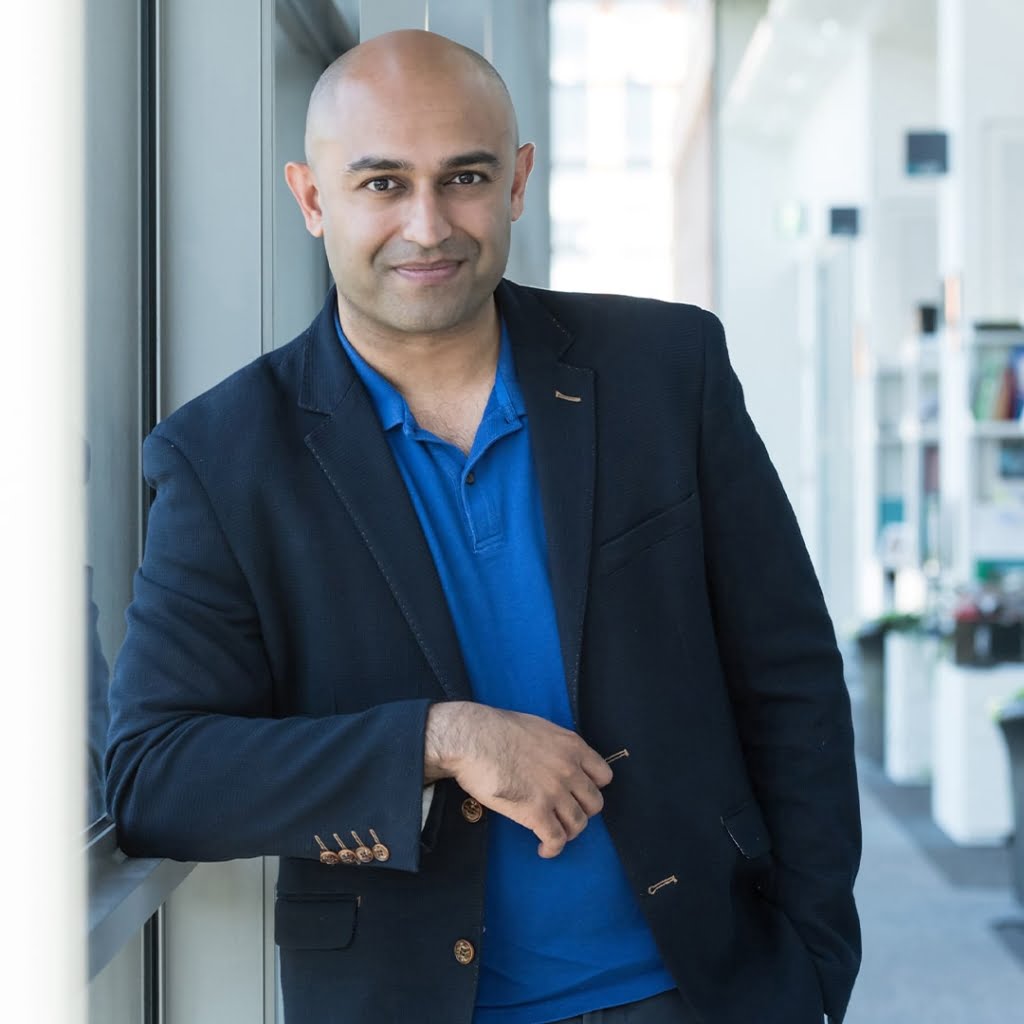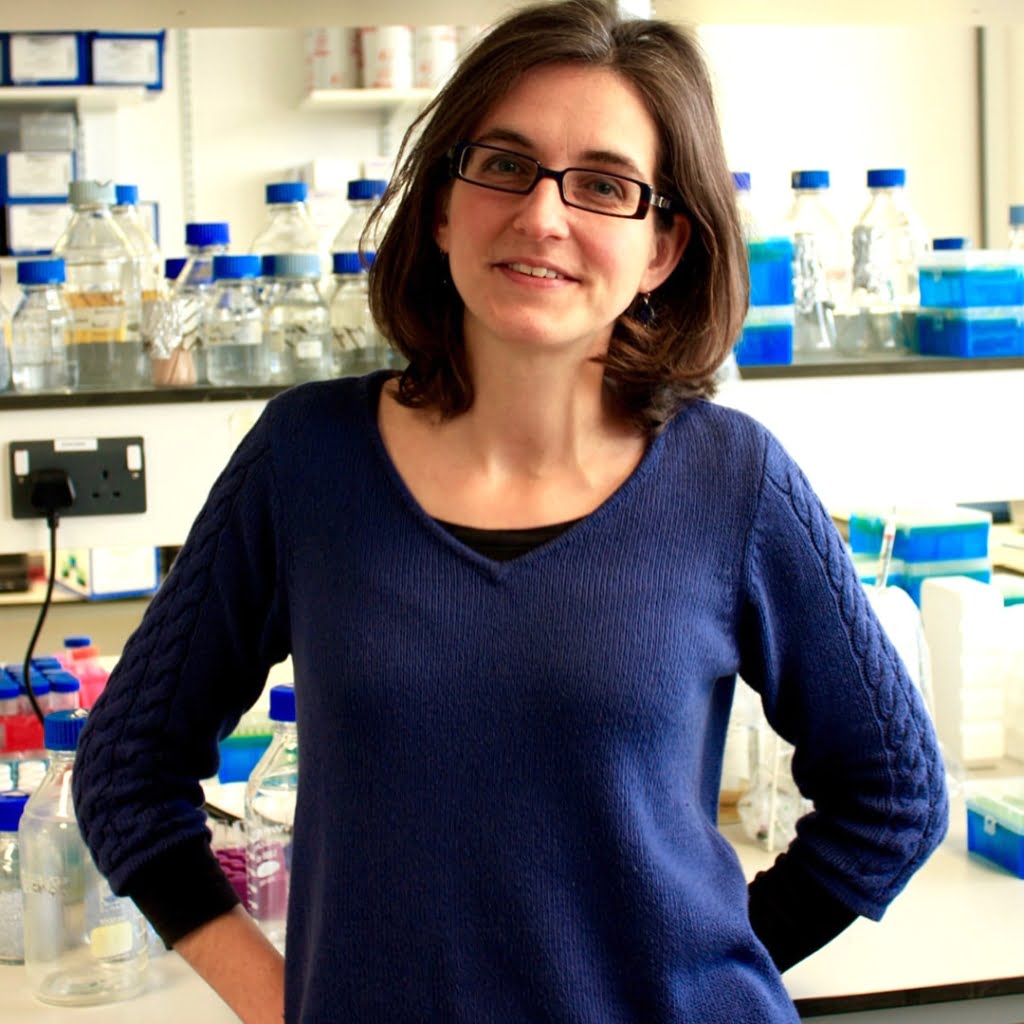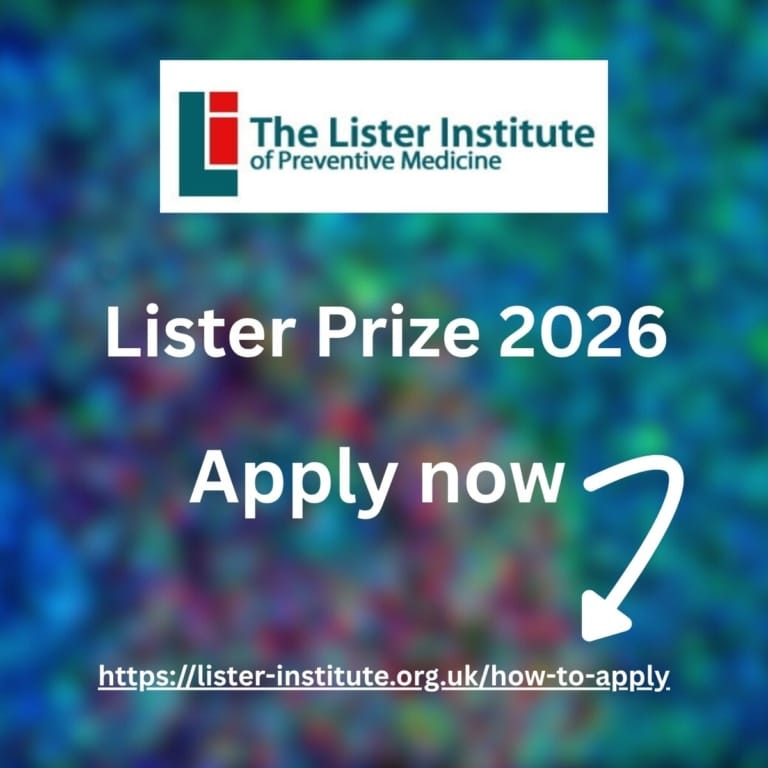With the 2022 Lister Institute Prize shortly opening for applications, we are delighted to announce the researchers who have been awarded the 2021 Fellowship in recognition of their excellence as early-career biomedical scientists and the future potential of their cutting-edge work.
“Despite all of the challenges that the current pandemic has made to our young researchers, we had a large number of extremely high-quality applications,” says Chair of the Scientific Advisory Committee, Professor John Iredale, who leads the task of deciding who wins the Prize.
Due to the COVID-19 pandemic, this was the second year in which interviews of the shortlisted candidates were held via video conference.
“We are delighted to be able to award six Prize Fellowships to six outstanding individuals with impressive proposals,” says John.
The 2021 Lister Prize Winners

Dr Tanmay Bharat, University of Oxford
Tanmay is a Royal Society/Wellcome Trust Sir Henry Dale Fellow at the Sir William Dunn School of Pathology. His research group explores how bacteria form biofilms – multicellular, organised communities that constitute one of the primary mechanisms by which bacteria evade antibiotics.
He is also a recipient of the Bayer Healthcare Award, EMBO Long-Term Fellowship, FEBS long-term fellowship, EMBO advanced fellowship and the Rhodes Scholarship.
“I am honoured to be selected for a Lister Prize and looking forward to interacting with the eminent members of the Lister Institute,” he says. “This award will allow us to work on research questions with exception biomedical importance, and my laboratory and I are excited about the years ahead.”
You can read more about Tanmay’s research here: https://www.path.ox.ac.uk/content/tanmay-bharat

Professor Ravindra Gupta, University of Cambridge
Working in the area of HIV resistance, Ravindra established his first research group in 2011 and works between the Africa Health Research Institute in Durban, South Africa, and the UK. Since 2019, he has been Professor of Clinical Microbiology at the Cambridge Institute for Therapeutic Immunology and Infectious Diseases.
In 2020 he was named as one of the 100 Most influential people by TIME.
You can read more about Ravindra’s research here: https://www.immunology.cam.ac.uk/staff/professor-ravindra-gupta

Dr James Lee, Francis Crick Institute
James has this year moved from the University of Cambridge to become a Clinical Science Group Leader at the Francis Crick Institute.
His work looks at how tiny differences in DNA predispose people to inflammatory diseases such as rheumatoid arthritis. By uncovering the biological mechanisms involved, his lab hopes to better understand these conditions and find new ways of treating them.
In 2014, James was named as the inaugural “Young Gastroenterologist of the Year – Clinical and Translational Science” by the British Society of Gastroenterology. He has been awarded the Julia Bodmer Award, the Sir Francis Avery-Jones Medal, and the United European Gastroenterology Society Rising Star Award. He is an editorial board member at Gut and Research Awards Panel member for Crohn’s and Colitis UK.
You can read more about James’ research here: https://www.crick.ac.uk/research/labs/james-lee

Professor Rickie Patani, UCL and The Francis Crick Institute
Rickie runs a research lab at the Francis Crick Institute, is Professor of Human Stem Cells and Regenerative Neurology the UCL Queen Square Institute of Neurology and is a consultant neurologist at The National Hospital for Neurology and Neurosurgery, UCLH.
His academic research on diseases of the nervous system, focusses on motor neuron disease (ALS) and uses stem cells generated from real patients to better understand the disease and seek potential therapies.
In 2018, Rickie was elected Fellow of the Royal College of Physicians and secured an MRC Senior Clinical Fellowship. Earlier this year, he was awarded the Graham Bull Prize and Goulstonian Lectureship of the Royal College of Physicians. He was previously awarded the International Paulo Gontijo Prize in Medicine and the International 3Rs Prize. He serves on 2 MRC panels and on the MNDA research panel.
You can read more about Rickie’s research here: https://www.crick.ac.uk/research/labs/rickie-patani

Dr Christopher Stewart, Newcastle University
Christopher runs his own research group within the Faculty of Medical Sciences, where he is a Newcastle University Academic Track Fellow (NUAcT). He is also a Royal Society/Wellcome Trust Sir Henry Dale Fellow.
He researches the microbiome and host responses in human health and disease. With the Lister Prize fund, Christopher will use stem cell derived “mini guts” to investigate the interaction between diet, microbe, and host. Understanding more about this is critical for developing new and effective therapies for babies born prematurely.
You can read more about Christopher’s research here: https://www.ncl.ac.uk/medical-sciences/people/profile/christopherstewart.html

Dr Stineke Van Houte, University of Exeter
Stineke is an Associate Professor and BBSRC Future Leader Fellow at the University of Exeter. Her work explores the interactions between bacteriophages and plasmids and their bacterial hosts. She is interested in developing new tools to tackle antibiotic resistance using the highly versatile CRISPR-Cas9 enzyme to remove antimicrobial resistance genes.
“To become part of the Lister community is a huge honour,” she says. “The Lister Prize, and the flexible funding it provides, is a major boost for an emerging line of research in my lab, that comes at a critical point in my career. I look forward to contributing to the scientific community, and eventually to generating real societal impact through the research funded by Lister.”
You can read more about Stineke’s research here
We hope to hear from this year’s Fellows and award their certificates to them in person during our Annual Fellows Weekend, due to be held this September at Corpus Christi College, Oxford.
Apply for the 2022 Lister Prize Fellowship
If that has whetted your appetite, we are delighted to say that applications for the 2022 Prize will open later this month. We welcome applications from early-career biomedical researchers across the UK and the Republic of Ireland who feel that the funding would make a major difference to their work.
We offer a prize of £250,000 (awarded as a lump sum grant) that must be spent within five years. It can be used for any research costs and expenses, including the salaries of post-doctoral workers, technicians, or PhD students, except your own salary.
Please keep an eye on the website for further announcements.
Meanwhile, you can find out more about the Prize on this page: http://lister-institute.org.uk/what-are-the-research-prizes/
There are further details about eligibility here: http://lister-institute.org.uk/eligibility/
And this page describes the application process in more detail: http://lister-institute.org.uk/how-to-apply/



